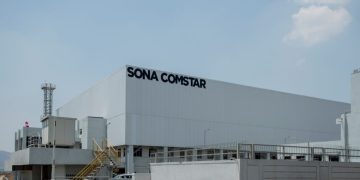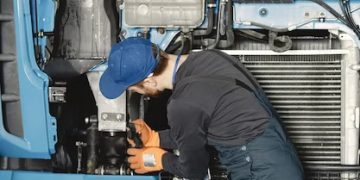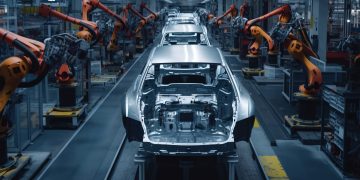With production commencing in Ghent, Belgium, Volvo is now building electric trucks in four factories – three in Europe and one in the US.
“I’m excited! The Ghent facility is our largest in the network, making this a significant milestone. More transport companies can now embrace electric vehicles with Volvo,” stated Roger Alm, President of Volvo Trucks.
In Ghent, three distinct electric models will be manufactured: the Volvo FH, Volvo FM, and Volvo FMX Electric. These trucks are capable of operating at a total weight of 44 tonnes and can be customized for various transport requirements.
“Our trucks are renowned for their exceptional quality, safety, design, and driver comfort. It’s gratifying that our customers can enjoy all these benefits while transporting goods with zero CO2 emissions,” added Roger Alm.
Ghent is Volvo Trucks’ largest production site, with an annual capacity of approximately 45,000 trucks. Electric trucks are produced on the same platform and assembly line as diesel and gas-powered trucks, providing the factory with great flexibility for accommodating various variants and demands. The battery packs are supplied by the recently inaugurated battery assembly plant in Ghent, conveniently located next to the production line.
LETTERS OF INTENT FOR 6,000 E-TRUCKS FROM 42 COUNTRIES
Ghent becomes the fourth Volvo Trucks factory to manufacture battery electric trucks. Blainville in France pioneered electric truck production for refuse handling and city distribution in 2019, followed by the New River Valley plant in the US producing the VNR Electric for regional transport in 2020. A significant milestone was achieved last year at the Tuve plant in Sweden when Volvo Trucks began serial production of their heaviest electric trucks, making them the first global manufacturer to do so.
Volvo Trucks has received orders, including letters of intent, for approximately 6,000 electric trucks across 42 countries on six continents.
“Only a few years ago, many believed electrifying heavy truck transport was impossible. However, we committed early to electrification as our primary path to zero emissions. Today, we offer a leading range of purpose-built electric trucks in commercial operation worldwide,” said Roger Alm.
“To facilitate this substantial shift to electric, governments must take action by offering incentives for technology investments, expanding power grid capacity, and implementing CO2 taxes to enhance the competitiveness of sustainable transport.”



























































